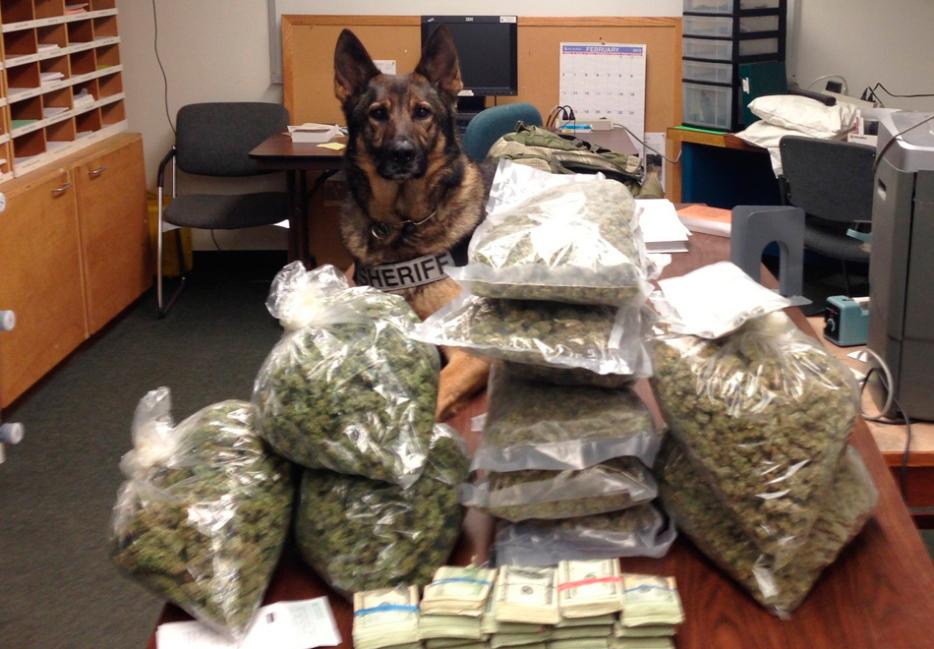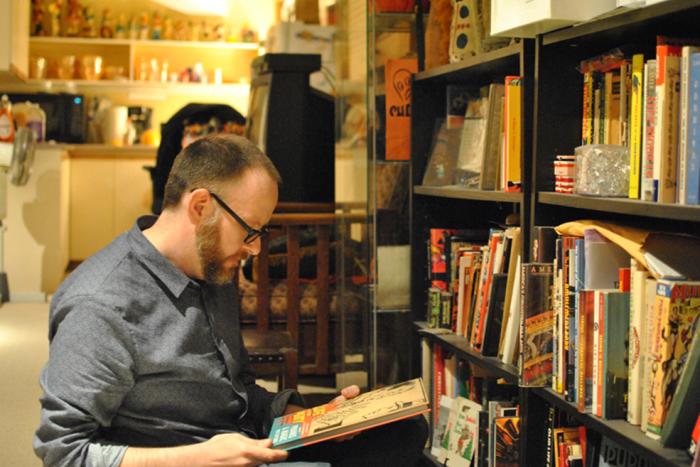In Washington State, change starts with the dogs. As the Guardian reported last week, K-9 units in various police departments across the state are being retrained to ignore pot. Roll up a joint. Pack a bowl. The dogs won’t mind.
“We wanted to train our dog on what was truly illegal substances, that would be heroin, methamphetamine and cocaine,” said Officer Duke Roessel, handler of a 19-month-old Black Lab named Dusty who ignores marijuana, but recently busted someone with five pounds of meth. With new state legislation that makes holding an ounce of pot legal, police departments across the state are considering either not training their next generation of police dogs to sniff out weed or putting their existing animals through “extinction” training, which takes a month, as well as everyday reinforcement, to change a dog’s behaviour.
It will take a lot longer than that for people to get used to the idea of legal pot. When Colorado and Washington State voted to legalize marijuana last fall, it marked the beginning of a grand experiment, with a million adjustments, big and small. It’s a rare, nearly unprecedented change—the moment when a popular illicit substance that has been prohibited for decades finally makes its way into the legal market.
Just last week, however, former Microsoft exec Jamen Shively announced his intention to create a national brand of recreational pot, with the support of former Mexican President Vincente Fox. Shively says he’s already purchased a medical marijuana dispensary in Washington State and is in the process of acquiring more in Colorado and California (where pot is legal for medical purposes, but not recreationally). Shively’s vision includes millions of dollars in investments, tens of millions of customers, and more than a thousand jobs in Seattle alone. “We’ve created the first risk-mitigated vehicles for investing directly in this business opportunity,” he said, meaning: this is the first time you can make cash selling drugs without looking over your shoulder. “Yes, we are Big Marijuana.”
In Canada—a country with the dubious distinction of having more young tokers than any other wealthy nation—we are now curiously behind when it comes to legal pot. While Shively announced plans to create a Starbucks-like marijuana chain, across the border in British Columbia new mandatory minimums mean that anyone with more than six plants can expect six months in jail. But with both opposition parties supporting either decriminalization or outright legalization, an election could change the drug landscape. And so politicians and policy analysts—not to mention large-scale pot growers with dollar signs in their eyes—are looking at the experiments to the south with interest.
A few weekends ago in Toronto, pot aficionados from across the world gathered at the Metro Toronto Convention Centre to look at seeds, compare vaporizers, and smoke a whole bunch of herb at the Treating Yourself Expo. Here, despite the fact that marijuana is entirely illegal for recreational purposes, entrepreneurs aren’t waiting for legislation. Sam Mellace, a pot activist who once sparked a joint in the House of Commons, has a series of pot-filled warehouses across the country and dreams of creating a nation-wide network of regulated medical marijuana dispensaries. In the quiet Muskoka town of MacTier, local residents were appalled to learn that councillors were considering selling their community centre to a company that wants to turn it into a marijuana factory. If Colorado and Washington are the future, Canadian wannabe pot tycoons are already anticipating it, creating increasingly large businesses in the grey market provided by medical marijuana legislation. The logic is simple: grow now and get a head start. The dogs will come around soon enough.






